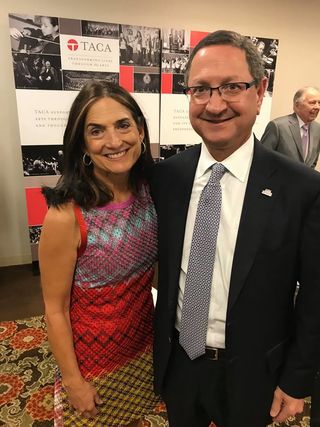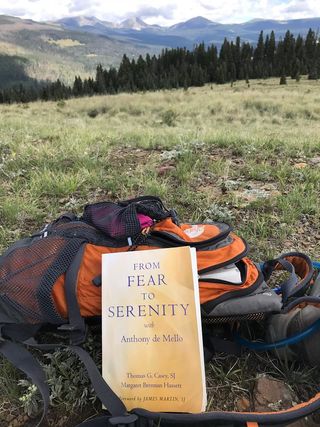Stress
Being Alone: When Does It Help Versus Hurt?
What is the difference between solitude and isolation?
Posted August 31, 2018

People laugh when I tell them I’m an introvert. They’ve seen me on stage, always eager for the microphone, never at a loss for words. Except, of course, when I’m not. Depression renders me mute, as happened again this summer.
Another relapse felt like a personal failure. Since 2010, I’ve given hundreds of speeches about the importance of early detection, prevention, wellness and resilience. Yet despite my vigilant attention to exercise, eating right, taking medication and periodic psychotherapy, doggedly following my self-crafted Top Ten for Wellness, I cratered.
Not for long, luckily. With a stiff shove from my husband and the support of my family, I voluntarily checked myself in the psych ward for a couple of days and had four sessions of Electroconvulsive Therapy (ECT) over a ten day period. As always, I immediately rebounded. Light, color, and humor fill my life again. I’m grateful, but I still want to understand why this relapse happened.
Stress set things off, financial (for particular non-profits that I support), emotional (deaths of beloved family members and a friend who I was trying to help with depression), friends with deadly illnesses (some that died from them), misreads and actions that felt like betrayal, an upcoming move from our home of 20 years, added responsibilities when my plate was already overflowing and political commentary overload. Not to mention positive stress. Positive stress? What the heck is that?
Ahhhh, positive stress has been perhaps the most difficult concept for me to comprehend. Let me surmise: burn out from doing too much. Good stress is still stress.

I’m lucky to be married to Ken Hersh who is CEO and President of the Bush Center and have a number of fun, but challenging roles in the community including Chair of the Board of the Dallas Theater Center and involvement in TACA, Dallas Black Dance Theater, and other arts organizations in our city. In addition, I have an active role in the Center for Depression Research and Clinical Care at UT Southwestern and have recently co-founded a coalition of mental health advocates in Dallas to focus on consistent messaging and coordination with regard to mental health and wellness for our community. All good, but this means we barely come up for air.
Ken is a complete extrovert who thrives on constant activity. I love many of these things, but need at least two nights a week of what I call "pajama and slipper time." Susan Cain, author of Quiet, would probably call me an ambivert. Just attending all the interesting events at the Bush Center and supporting Ken on things he’d like to do (e.g., Ranger’s baseball) would burn out a person of normal energy.
Luckily, I’m fairly high energy. If I want to do things I’d like to do, as well, we don’t have enough nights in a week. We could easily be doing something every night of the week in Dallas. If I do this, I burn out.
How do we solve this? We compromise. We both acquiesce to the other at some points, attending together something the other loves and individually either of us only likes. This works pretty well, until there is additional unplanned stress, like what happened this year. I saw this was happening and planned an outlet.

My son, a group of his buddies and I were going to take a five day hike through the Pecos Wilderness. When that trip cancelled due to wildfire danger, and more stress and responsibility piled on in its place, my depression switch flipped. I plowed through, knowing I was in danger. I even proactively set up a few sessions with my psychotherapist. She acknowledged my over-stacked plate, but we both thought I was okay.
By mid-July, the fire danger had lifted and I had an opportunity to hike by myself in the Pecos Wilderness. Solitude seemed like the right thing, but in retrospect I wonder if this was more isolation than solitude. Solitude fills me up. As Ken sometimes grumbles, “my favorite day is a day with you; your favorite day is spent by yourself.” This is only partly true. Without solitude, I can’t hear who I am anymore. My head is filled with the chatter of all the voices around me.

Sometimes, however, I need others to pull me from the spiral of isolation. I need to laugh. Belly laughs, preferably. Although I can amuse myself for hours, it’s never as satisfying to laugh by myself.
I wish I had a “socialization” barometer to tell me when time alone will fill me up versus set me on a spiral of depression. Certainly, that would have helped this summer. Perhaps gauging that difference is my challenge in this lifetime of being human.
In the meantime, thank God for my husband, my family, UT Southwestern and ECT.




